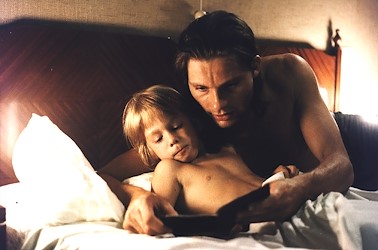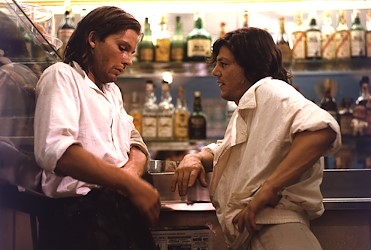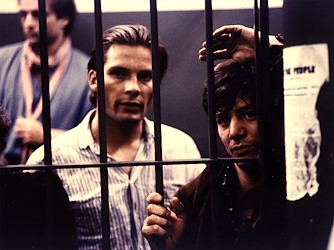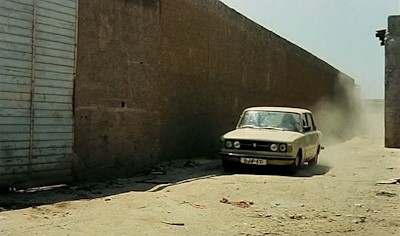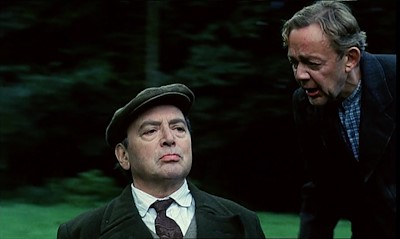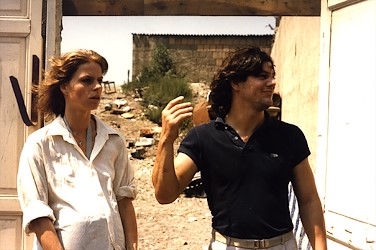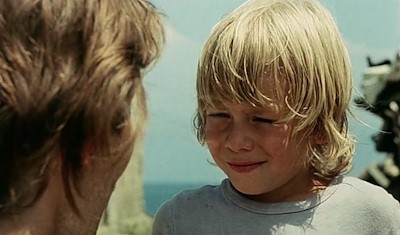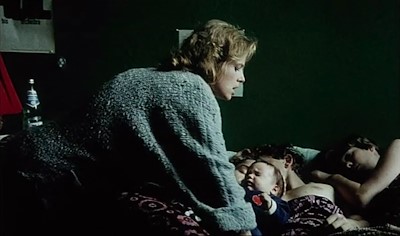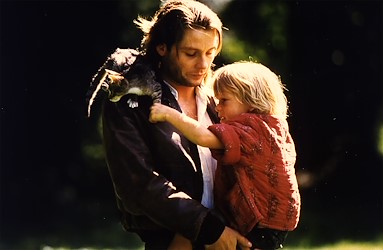Die Reise
Markus Imhoof, Germany, Switzerland, 1986o
In his unfinished novel essay "Die Reise" ("The Journey"), most of which was written in 1969 but only edited in 1977, the German publisher and author Bernward Vesper describes his career, typical for the 1968 generation, from the authoritarian son of a Nazi writer to the struggle for an independent position and the radicalisation in the student movement of the 1960s alongside the later RAF terrorist Gudrun Ensslin. Markus Imhoof's free cinematic adaptation of the text turns the kidnapping of Ensslin and Vesper's little son from a Sicilian terrorist camp and the wild flight to Berlin into a dramaturgical guideline for an associative montage in which the life stations of Vesper and Ensslin (called differently in the film) are highlighted.
It is astonishing that a Swiss director succeeded in creating one of the most conclusive and atmospheric portrayals of the German generation of 68 and its terrorist aberrations. With a bold trick, Markus Imhoof takes the title of Bernward Vesper's autobiographical fragment "The Journey" at its word and takes Vesper's defection from his former partner Gudrun Ensslin and from the Red Army faction's propensity to violence as the dramaturgical guideline of an exciting narrative: The kidnapping of the little son from a preparatory camp for terrorists and the chaotic journey via Berlin back to his parents' house, where the whole disaster began, form the framework for an associative montage of flashbacks wchich cicle around the fights with the authoritarian father and are contrasted by Bernwards chaotic but caring relationship with his own son. Hans Liechti's camera work risks darkness and grain and gains in atmospheric density with each of the well thought-out shots. The set design and the cast, hardly known except for a few exceptions, contribute to the authenticity of the depicted environment. The film makes its point in a powerful way: The specific German path from the students' rebellion to terrorism was shaped by the omnipresence of old Nazis. High time for the rediscovery of this film, which stands in line with Imhoof's famous Swiss refugee drama Das Boot ist voll.
Andreas FurlerThose who admired Markus Imhoof’s «The Boat is full» (1980) will not be disappointed by his honest and conscientious approach to German postwar father-son conflicts that led to the student rebellion of 1968 and the hysteria surrounding the Baader-Meinhof Group, as depicted in his well-researched film adaption of Bernward Vesper’s «The Journey».
nnImhoof schafft es, den schwierigen Weg einer rebellierenden Generation mit erstaunlicher Differenziertheit nachzuzeichnen, ohne dabei gross ins Wanken zu kommen. Wenn Vossens Knabe am Ende den ihm davontragenden Polizisten in die Hand beisst, so gefriert in einem letzten Bild die Hoffnung, dass die Kinder endlich einmal frei werden können, von den Schulden, die ihnen ihre Väter hinterlassen haben.
nnGalleryo
